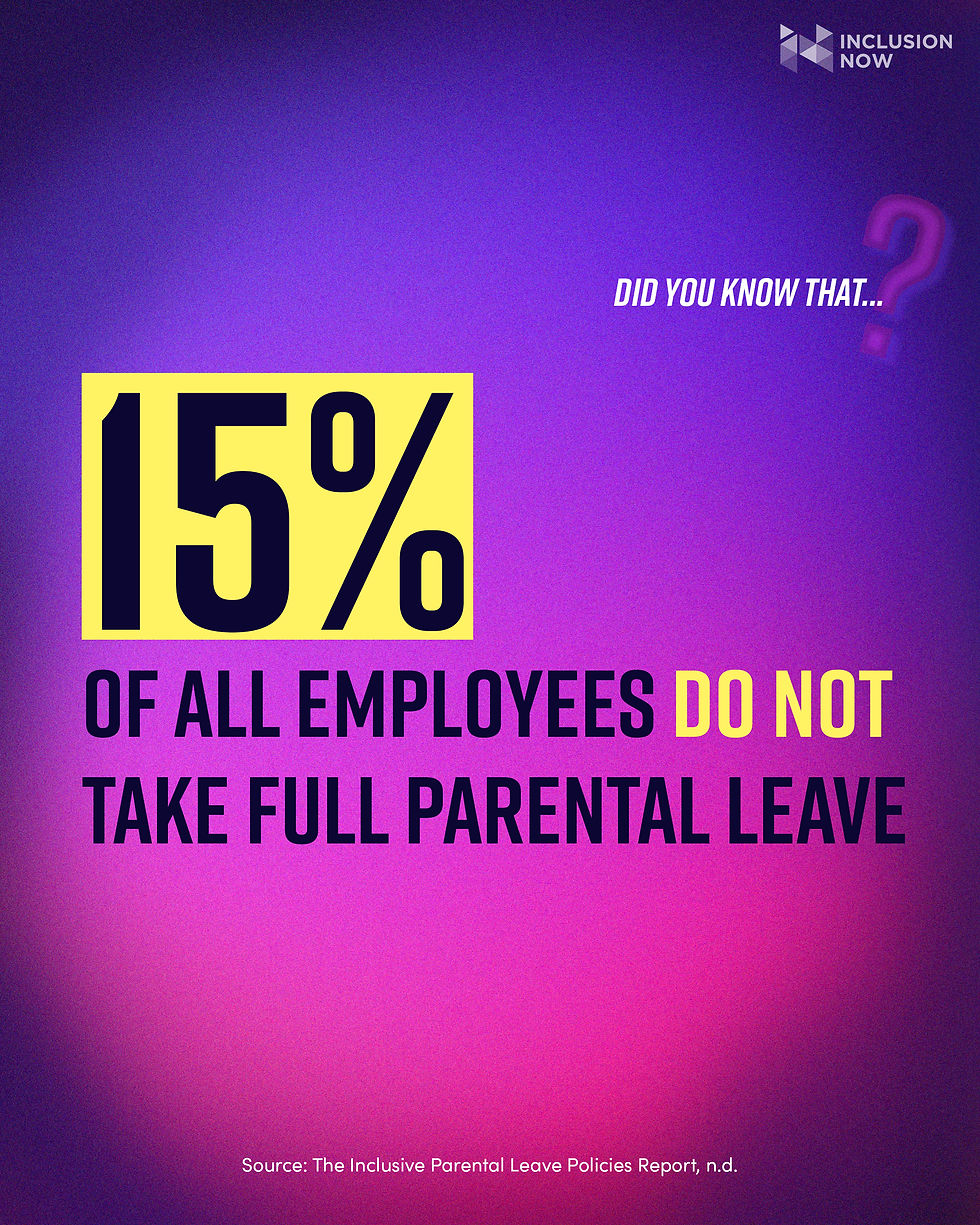Breaking Down Parental Leave Stigma
- Inclusion Now

- Apr 4, 2024
- 3 min read
Updated: Apr 10, 2024

At our recent online meetup, we delved into the often-overlooked but crucial topic of parental leave stigma. With guest speaker Amir Kabel who is Vice President and Head of Equality at Salesforce, we explored the multifaceted challenges faced by parents and caregivers in the workplace and discussed strategies for creating a more supportive work environment.
Here are our key takeaways.
Stigma impacts more groups than you think
Typically when we think of who is on the stigmatized end when it comes to parental leave, we think about stressed out mothers trying to juggle their newborn and the unforgiving pressure to return to work.
While this is the stereotypical case, parental leave stigma is more pervasive than we think. It also affects non-birthing parents and caregivers, and people across various demographics such as LGBTQIA+ individuals. Despite the importance of parental leave for caregivers, it is often viewed merely as a “company policy” or “work benefit” rather than a non-negotiable component of diversity, equity, and inclusion (DEI) efforts. However, as highlighted by Amir, addressing parental leave is instrumental in creating a more equitable workplace. This in turn can convert to retaining valuable talent.
Support from the top down
One of the biggest hurdles in combating parental leave stigma lies in shifting the culture of your organization. While creating policies that support parental leave are important, they must be reinforced by a culture that encourages employees to take advantage of this leave without fear of repercussions to their career. In this situation, managers should have the necessary training to support the employees through the parental leave process.
Let’s think big picture
In addition, companies should offer a comprehensive suite of benefits beyond parental leave including mental health support for both parents and their children. By focusing on the overall well-being of employees, organizations will directly support parenthood. It is not just about giving people time off to be with their new family, but to support them as whole human beings that have lives outside of work.
What can organizations do?
To confront these challenges head-on, organizations can leverage innovative strategies such as data analysis, employee resource groups (ERGs), and top-down policy changes. By adopting an intersectional approach and recognizing individual differences, companies can cultivate allyship and create a more supportive environment for parents and caregivers.
Return-to-work programs are also crucial in changing the narrative around parental leave. By emphasizing the positive impact of taking time off to care for a child and providing support for employees upon their return, organizations can reduce stigma and foster a culture of inclusivity.
The solution starts with evaluating our own biases
At an individual level, it's essential for each person to reflect on their own behaviors and question their own values.
What biases did I inherently have towards parenting and taking time off from work to pursue this journey? Do I believe that it is important? What does an ideal work-life balance look like?
By initiating conversations, challenging stereotypes, and offering support, we can collectively contribute to breaking down parental leave stigma and fostering a workplace where all potential parents feel confident in their ability to maintain their career while pursuing building a family.
Ultimately, addressing parental leave stigma is not only a matter of policy but also a fundamental aspect of building a diverse, equitable, and inclusive workplace. By implementing proactive measures, supporting parents at all levels, and fostering allyship, we can create a workplace where parenthood is celebrated, and all employees can thrive.
Explore More!
Want to evaluate parental leave stigma in your organization amongst other biases? We offer many workshops and training sessions to tackle DEI problems. Curious about the impact our interactive workshops can have on your organization? Drop us a message at info@inclusionnow.eu – we’re eager to connect.

Comments